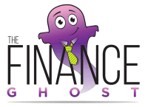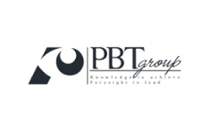Best of Ghost Mail – How investors can use net asset value (NAV) to choose investments.
In investment holding companies and property companies, the concept of “net asset value per share” or NAV per share is never far away. In investment holding companies, you’ll also hear the term “intrinsic NAV” thrown around.
Long story short: under accounting rules or through the use of director valuations, this concept tells you what the directors think that the company is worth. If they’ve done it properly by making allowance for future taxes on sale of those assets, then in theory a company like this should trade at or close to the NAV per share.
But in practice, there are wide discounts to NAV. Why is that?
Firstly, it’s not free to be a listed company. There are layers of costs and the management teams aren’t cheap either. In some cases, management is downright expensive and that’s before we take into account their mistakes! If the management fees are particularly high (which was historically the case at the likes of African Rainbow Capital), the discount tends to be larger.
Secondly, the market may not necessarily believe the valuation. This is common in property companies, particularly in a market downturn, with the market waiting for evidence of actual sales of properties at the directors’ valuation to back up the story. We’ve seen this recently with Attacq and the potential deal with the Government Employees Pension Fund (GEPF) to sell 30% of the Waterfall properties at a price that is seen to be attractive by the market.
Why is it attractive? Because the discount at which Attacq is selling that stake is less than the discount at which the listed shares are trading. In other words, the directors have proven that the value is closer to the NAV than the market thought.
Attacq Limited (JSE:ATT)
Remgro also deserves a mention here. The discount to NAV has usually been quite consistent (somewhere around 40%), but occasionally it opens up to higher levels. When that happens, some investors see it as an opportunity to buy at a relatively cheap valuation vs. historical levels.
Of course, when investing in an investment holding company, you need to look at the discount to NAV (the valuation) and the underlying companies in the portfolio. After all, it doesn’t help to buy at a great discount to NAV if the NAV subsequently underperforms!
This discount can be your friend or your foe. It all depends what price you buy at.
Look beyond the household names
You need to be incredibly careful of chasing the companies that everyone is talking about. Thungela is a stunning example, down nearly 25% this year at time of writing. That’s a drop from R257 per share at the start of January to around R194 per share. Unless you’ve been living under a rock (and not in a mining context), you’ll know that Transnet Freight Rail (or is that fright rail?) has been a major issue here. If coal can’t get to the ports, it also can’t be exported.
Even a final dividend of R40 per share doesn’t help much if you bought recently. It will also be interesting to see where the share trades ex-div (after the dividend is paid), as it is likely to drop further once the dividend is no longer embedded in the share price.
Thungela Resources Limited (JSE:TGA)
There is value to be found by looking beyond the names that dominate conversations on Twitter or around the braai with your friends. PBT Group is a wonderful example, a small cap on the JSE that offers consulting services around key trends like big data. The company is run to high standards and focuses on delivering results rather than flashy presentations. With the sale of a non-core business in Australia, there will likely be a special distribution of R1.51 per share coming soon. That’s significant on a share price around R8.20, particularly as the market wasn’t placing much value on that Aussie stake.
Speaking of Australia, part of the share price pressure at Thungela is that the company has decided to execute a huge acquisition on the other side of the world. The last company to do that was Woolworths and they’ve only just gotten out of the David Jones headache. Murray & Roberts is in the process of getting out of the mess at its Australian business Clough. Our track record in Australia is even worse in business than it is in cricket. The market knows this.
PBT Group Limited (JSE:PBG)
Sometimes you want the gold, other times you need the shovel
If you like the energy theme, you don’t have to buy mining companies to take a view on it. Sure, you might want a risky pure-play on a commodity (like Merafe and ferrochrome) or you might prefer a more diversified monster like Glencore or South32. But if you want to take a step back up the value chain, you could buy the drills or trucks instead.
In Master Drilling, you could’ve doubled your money since the Covid lows. This business has been on the right side of the increased investment in mining exploration. After all, haven’t you been noticing lots of announcements about drilling projects at mining houses? Drilling? Get it?
Master Drilling says that the order book is looking good, so that’s promising for 2023. I would just keep a close eye on the capex spend, which seems to be significant. An alternative is Bell Equipment, which has shot up 14% in the past month and is still trading at a relatively modest multiple. Those big yellow trucks on the mines have to come from somewhere, don’t they?
Bell Equipment Limited (JSE:BEL)
Sources – EasyResearch, Finance Ghost
Follow @FinanceGhost

Any opinions, news, research, reports, analyses, prices, or other information contained within this research is provided by an external contributor as general market commentary and does not constitute investment advice for the purposes of the Financial Advisory and Intermediary Services Act, 2002. First World Trader (Pty) Ltd t/a EasyEquities (“EasyEquities”) does not warrant the correctness, accuracy, timeliness, reliability or completeness of any information (i) contained within this research and (ii) received from third party data providers. You must rely solely upon your own judgment in all aspects of your investment and/or trading decisions and all investments and/or trades are made at your own risk. EasyEquities (including any of their employees) will not accept any liability for any direct or indirect loss or damage, including without limitation, any loss of profit, which may arise directly or indirectly from use of or reliance on the market commentary. The content contained within is subject to change at any time without notice.
Subscribe To Our Research Portal
Search all research
Let Us Help You, Help Yourself
From how-to’s to whos-whos you’ll find a bunch of interesting and helpful stuff in our collection of videos. Our knowledge base is jam packed with answers to all the questions you can think of.





-1.png?width=1200&length=1200&name=image%20(6)-1.png)

-1.png?width=1200&length=1200&name=image%20(7)-1.png)